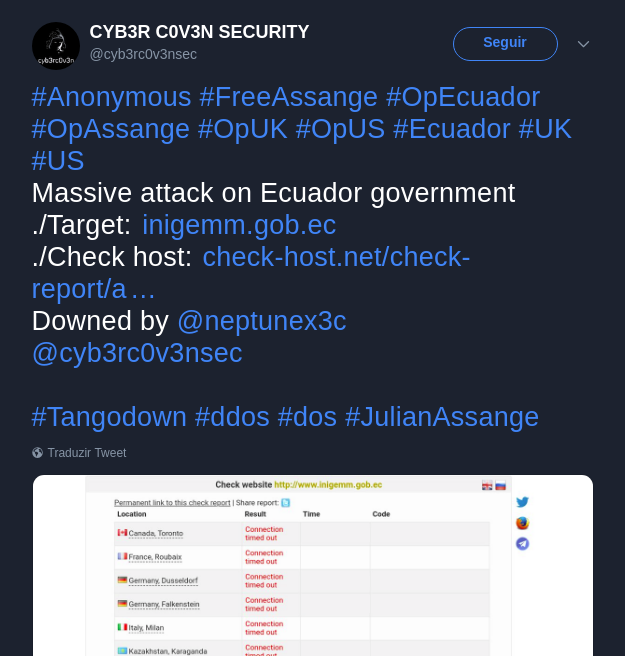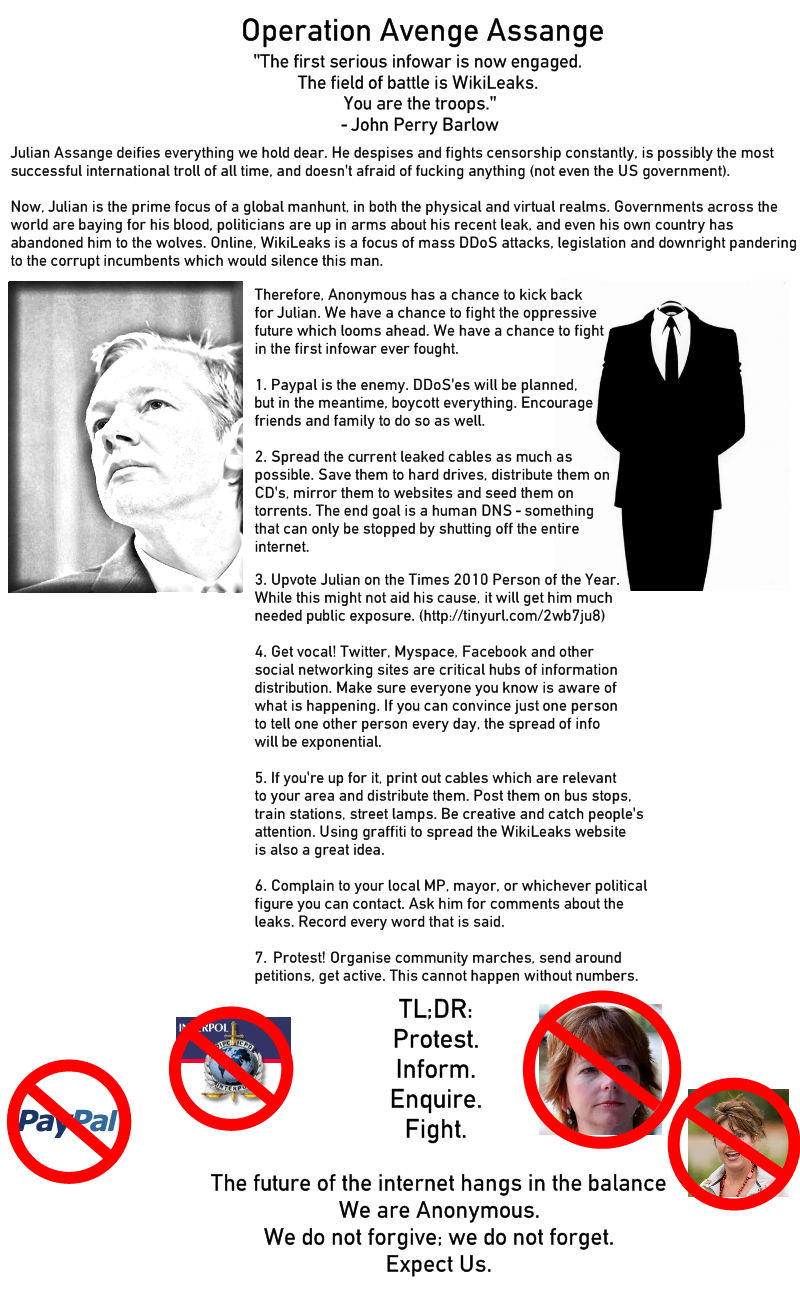Two days after the Thursday arrest of Julian Assange at Ecuador’s London embassy, several government websites were hacked; including Ecuador’s official website, the Central Bank of Ecuador, the Ministry of the Interior and the Ecuadorian Assembly in the UK, according to Gateway Pundit‘s Cassandra Fairbanks, who was in London last week and documented the run-up to Assange’s arrest.
Looks like at least one Ecuadorian government subdomain has been hijacked. https://t.co/Ivl897ACQF pic.twitter.com/piwFjuRwIJ
— Jacob Riggs (@Riggsbit) April 13, 2019
Concurrent with the breach, a hacking group operating under the name “AL1NE3737” released a database containing the full names and passwords for what appear to be 728 Ecuadorian government employees.
I believe I've just found another database dropped with the full names and bcrypt hashed passwords for what appear to be 728 Ecuadorian gov employees alongside 5 admin credentials, one password of which is MD5 hashed (lol). Not sure exactly where these were sourced from yet.
— Jacob Riggs (@Riggsbit) April 13, 2019
Furthermore, Ecuador’s sites were hit with Denial of Service (DoS) attacks. According to DefCon Lab.
Among those involved in these attacks stand out from the groups / hacker DeathLaw , 5UB5, Cyb3r C0nven Security and Al1ne ( Pryzraky ).
DoS actions has consistently been against the Ecuadorian government targets, the country that gave Julian Assange to the UK police.” –DefCon Lab
…
The hacker Al1ne ( Pryzraky ) performed page defacements against and released a list of vulnerable targets related to the government of Ecuador
- Agrocalidad – The Agency of Regulation and Control Fito and Zoosanitario: http://www.agrocalidad.gob.ec/
- Metropolitan Transit Agency: http://www.amt.gob.ec/
- Instituto Geográfico Militar – Ecuador: http://www.igm.gob.ec/
As noted by Fairbanks, “The cyber attack was reminiscent of 2010’s “Operation Avenge Assange” which was launched by the broader “Operation Payback” effort. The movement lead to hacktivists hitting companies such as PayPal, PostFinance, Mastercard, Visa, and others who had blocked services to WikiLeaks with a distributed denial-of-service (DDOS) attack. This is when a website is flooded with fake traffic until it crashes and goes offline.”
Following Assange’s Thursday arrest, more than 70 MPs and peers signed a letter urging the UK home secretary to ensure that the WikiLeaks founder is extradited to Sweden if Swedish authorities request it.
Sweden is considering whether to open a previously-dropped investigation into allegations of rape and sexual assault against Assange.
The United States, meanwhile, wants to try Assange for the largest-ever leak of government secrets in 2010. On Thursday, the Justice Department hit him with an indictment that claims the WikiLeaks founder helped former US Army intelligence analyst crack DoD password using Linux.
“The indictment alleges that in March 2010, Assange engaged in a conspiracy with Chelsea Manning, a former intelligence analyst in the U.S. Army, to assist Manning in cracking a password stored on U.S. Department of Defense computers connected to the Secret Internet Protocol Network (SIPRNet), a U.S. government network used for classified documents and communications,” reads a DOJ press release.
Materials Manning released included videos of various US airstrikes in Iraq and Afghanistan, as well as the “Iraq War Logs” and “Afghan War Diary.”
Assange faces five years in prison if convicted in the Manning case.
The Emergency Election Sale is now live! Get 30% to 60% off our most popular products today!





